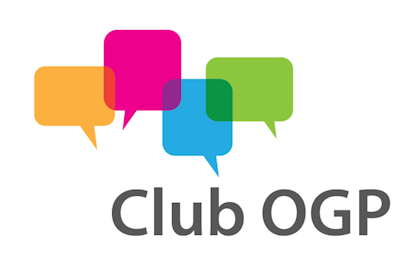Romania’s journey to implement the Open Contracting Data Standard

In 2013, at the Open Government Partnership Summit in London, Open contracting was announced as one of the major commitments of the Romanian Government. Since then, the Prime-Minister’s Chancellery team, responsible for the coordination of the implementation of the OGP in Romania, made constant efforts to promote the subject and create a base for dialogue with civil society and business environment on open contracting issues, including opening the public procurement data on the national open data portal – data.gov.ro.
Since its release in 2014, the Open Contracting Data Standard (OCDS) was one of the topics very well welcomed by the OGP Romania team, NGOs and academia. We’ll try to describe in the following our steps in implementing the OCDS in Romania as a base for further exchange of practice and knowledge.
Public procurement has become one of the most dynamic sectors, which is often both of big interest as well as a challenge for investors, companies and public administration in Romania. The dynamics of the sector are due both to the velocity with which laws are updated to better fight corruption as well as to the total value of the procurement procedures. Big public investment programmes are often ample enough to detrimentally influence an economic sector, thus dictating its activity for investors, in addition to the significant turnover percentage that they can make up for certain companies.
According to official data, more than 19,000 tendering procedures were initiated last year on the Romanian electronic public procurement platform. Their total value was RON 74.6 billion lei (approx. €16.9 billion), according to the latest Annual Report of the National Council for Solving Complaints (CNSC).
Thanks to the EU structural funds accessed by Romania, as well as to the foreign loans granted by international financial institutions such as the World Bank (IBRD) or the European Bank for Reconstruction and Development (EBRD), the number of publicly funded projects saw an important growth in recent years, taking into account the outstanding need to modernize the Romanian public infrastructure and services. Every one of these services and projects that the government implements requires to go through a procurement process.
The public procurement system in Romania is similar to those in other EU member states, primarily because the EU legislation – the 2004/18/CE and 2004/17/CE Directives of the European Parliament and the European Union Council – was rigorously transposed into the Romanian legislation. Consequently, Romanian award procedures are governed by the principles set by the European directives – transparency, equal treatment, non-discrimination, mutual recognition, proportionality, the efficient use of public funds, accountability.
Romania was among the first European countries to adopt an electronic system for public procurement with the launch its first electronic system, E-Market, and by publishing all the announcements for public tender.
In 2007, as Romania became an EU member state, the electronic public procurement system was replaced with eLicitatie, which was designed as a support for all the operational public procurement procedures.
Starting 2010, the Government asked all the public administration entities to run a minimum of 40% of the public procurement procedures online, aiming at 60% in 2016.
Nevertheless, public procurement was still one of the most criticized sectors by NGOs working on anti-corruption and transparency. As a result, from the moment Romania joined the Open Government Partnership back in 2011, public procurement was a constant subject on National Action Plans (renewal of the electronic platform in the 2012-1014 NAP, and open contracting commitments on the 2014-2016 NAP).
The access to information, especially open data, was at the core of our focus and commitments, and it represented an important effort being done to mitigate the inevitable misunderstandings between the civil servants and NGOs.
Similarly, open data is equally important for both transparency and good governance. To achieve these goals, we have focused our main efforts on opening the dialogue with social activists, data journalists and business associations, to understand their different approacheses and to find common ground or a common standard.
Therefore, the government of Romania very much welcomed the Open Contracting Data Standard as it is an important tool that will help us better define the most effective way to publish a worthy package of data related to public procurement. The data will equally aid the fight against corruption, as well as marketing evaluations. The civil society will better watch over the use of public money, while specialized studies will be able to more accurately define the market for thousand of products and services that are publicly procured.
Later in 2015, the next generation public procurement platform of Romania will be launched with multiple enhancements in terms of transparency, including publishing of all the public procurement data in open data format and in compliance with the Open Contracting Data Standard.
The government of Romania, through the Agency for Digital Agenda in Romania (AADR), made full efforts to fast track the OCDS’ adoption, and hopefully will publish all concluded governmental tenders as open data in OCDS by the end of 2015. Throughout this process, we were also very happy to see the openness and support of the AADR implementation team as well as the interest of the academic environment we got in touch with on this topic. The AARD team, although responsible only for technical aspects, is periodically inquired on public procurement by third parties. OCDS comes as a complete, straightforward solution for describing this type of contracts, therefore it has become the most efficient means of communication with the interested public. Academia and students specializing in e-government see the standard becoming an entry data format for BI processing by adopting it in their own projects, with AADR providing the needed data sets.
During this year, we will try to document and publish our experience in adopting the OCDS both from both a technical and consumer point of view in regards to this type of data, so we encourage you to stay in touch.